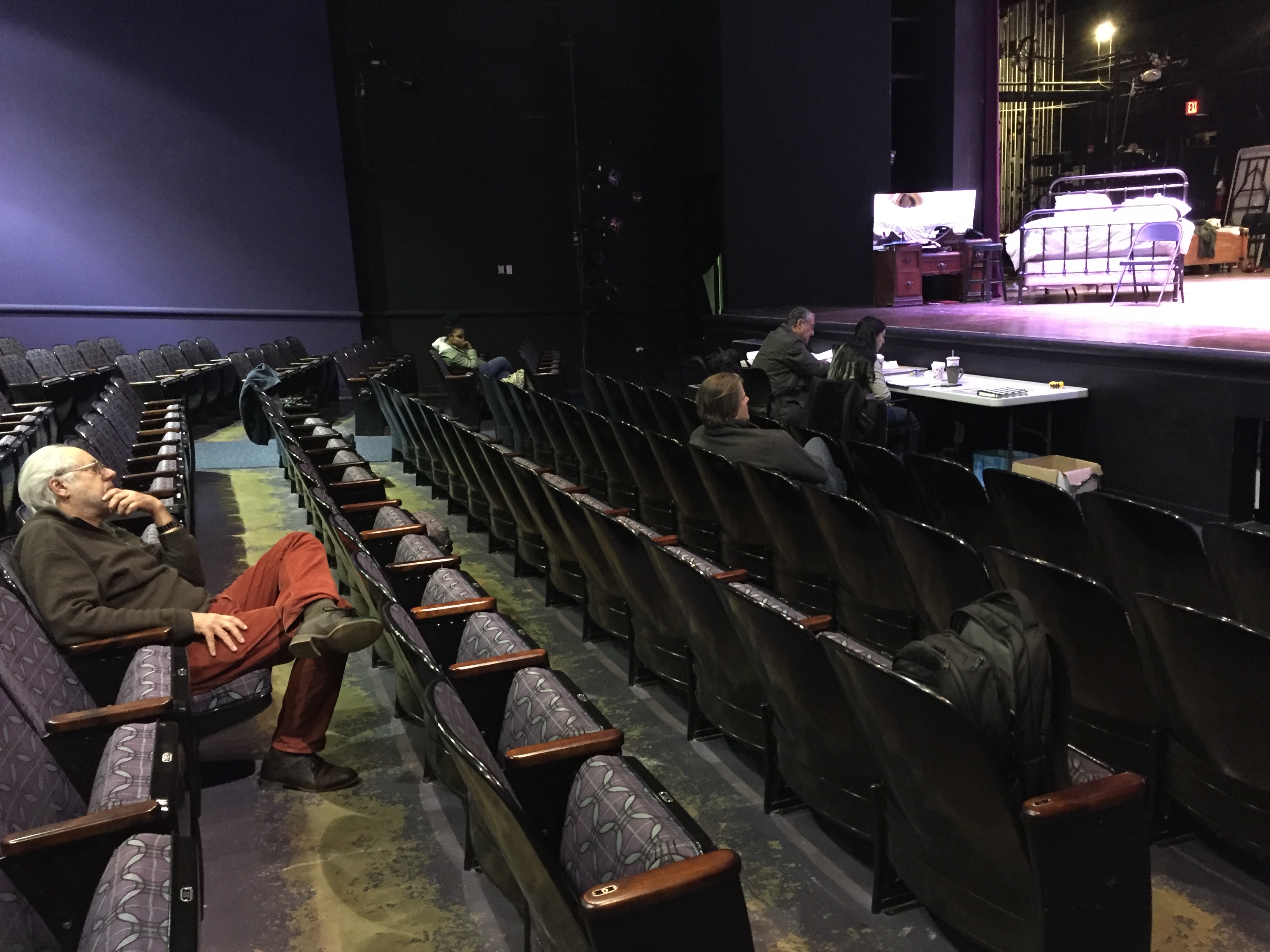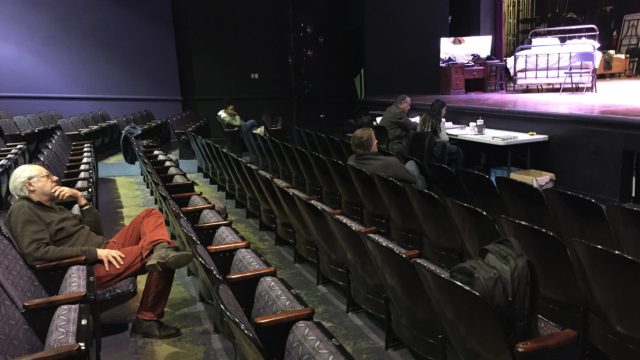By Montague Gammon III
The grand reopening of the Virginia Stage Company’s newly renovated, historic Wells Theatre home in downtown Norfolk, January 20 at 6:30 p.m., features a ribbon cutting ceremony, local musicians and tours of the facility, followed by a new production of Tennessee Williams’ Pulitzer Prize winning 1947 play, A Streetcar Named Desire.
Streetcar is, in brief, an intense domestic drama about the young, New Orleans couple Stanley and Stella Kowalski and the jolting climax of interactions between them and Stella’s sister, the older, perhaps unstable, Blanche Dubois.
The Broadway premiere of the play, directed by Elia Kazan, starred the relatively unknown duo of Marlon Brando and Jessica Tandy, and later included in its cast Anthony Quinn and Jack Palance. The 1951 film version, directed by Kazan and starring Brando, won three Academy Awards.
VSC Artistic Director Emeritus Chris Hanna, who is directing the production, took time after a rehearsal for a telephone chat about the show.
Why do Tennessee Williams A Streetcar Named Desire now? What makes it the right play for the company and for you to direct?
I think it is one of America’s greatest masterpieces. In the American theater I feel that there are two unmitigated classics: [Arthur Miller’s] Death of a Salesman and Streetcar. We did Death of a Salesman recently so it’s Streetcar’s turn.
I have until now shied away from directing it … I have waited, if not my whole life, then until I had complete control over the elements [of production].
At this point in my artistic career I have been able to pull together the production I have dreamed of.
I’m a story teller, and I am proud of in this production. You don’t know what is happening scene to scene. That’s my favorite sort of story. [One in which] this could go anywhere.
And let me just add, in terms of Stage Company history, that after the last major renovation we opened with [Williams’] Cat on a Hot Tin Roof, so it seemed very appropriate.
Why is this one of America’s greatest masterpieces?
It’s a combination of its themes, its story and the poetry of the language. They all come together in perfect proportions like the perfect cocktail.
It’s also been wonderful for me because we are far enough from Kazan’s amazing film that we can do something different with the story. The film hijacked Williams’ play, [that is,] since that film was made most stage productions have been judged against that film. People [have] always seen it through that black and white camera lens – that is a dated story and I think it’s now a limited view.
A wonderful thing about [stage] dramas is that they can be interpreted for every individual performance, unless a blockbuster film and an actor like Marlon Brando comes along.
It’s wonderful to have people who don’t know the story come and watch the play as something fresh, to have people coming through the door and seeing and hearing it for the first time.
We are rehearing at Old Dominion University. I asked students “Who knows Marlon Brando?” and only 2 of 20 students knew who Marlon Brando was.
What does this play say to an audience?
I think that Streetcar is a testimonial to survival.
“Message” sounds like a feel good calendar – but the play to me realizes that anyone who is alive is a survivor and we all have different mechanisms to survive. Some “healthy” and some “unhealthy.”
This production will be considered controversial by many because it does not embrace any stereotypes of female victimhood.
In this day and age and making Blanche a victim and making Stanley a brawling, sweaty man is a cross between soap opera and a Calvin Klein ad, and that is not great theater.
Neither the actress playing Blanche nor I see Blanche as a victim. She’s brilliant, she’s creative, and in her brain can go anywhere, and I think she lands on her feet. She’s a winner in the play. The ending does not happen when the curtain comes down.
A Streetcar Named Desire
By Tennessee Williams
Jan. 20-31, previews Jan. 17-19
Virginia Stage Company
Wells Theatre
110 E. Tazewell St.
(Tazewell St. & Monticello Ave.)
757-627-1234





